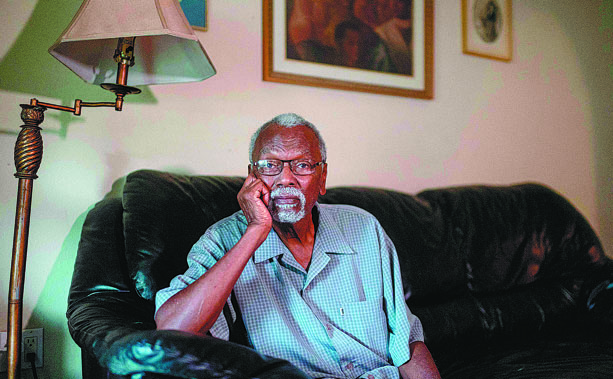Delta worsens hardships of life on 'Cancer Alley'


RESERVE, United States-Silos, smokestacks and brown pools of water line the banks of the Mississippi River in Louisiana, where scores of refineries and petrochemical plants have metastasized over a few decades. Welcome to Louisiana's "Cancer Alley".
Industrial pollution on this ribbon of land between New Orleans and Baton Rouge puts the majority of African-American residents at nearly 50 times the risk of developing cancer than the national average, according to the US Environmental Protection Agency.
For years, activists who gave the 140-kilometer stretch its sinister nickname have been fighting to clean up the area.
Then last spring, it began making headlines for a different reason. One of its parishes, Louisiana's equivalent of US counties, was hit with the highest rate of COVID-19 related deaths in the country.
"It ran through this community. People were terrified here," said Robert Taylor, a 79-year-old resident of St. John the Baptist parish.
At the height of the first wave in April 2020, three residents were dying every day in the community of 43,000.
"It changed our way of life," said Angelo Bernard who works for the Marathon refinery.
"In Reserve, we all used to get together all the time," he recalled. "We don't anymore. I go out as little as possible."
Since then, nearly one in eight parishioners has been infected.
The Delta variant has made the situation even worse. Infections have exploded in the last three weeks.
However, deaths have slowed in recent months-eight this summer, probably due to a vaccination rate that is among the highest in Louisiana.
After last year's trauma, parishioners rushed to get their shots, and St. John the Baptist now has 44.3 percent of its residents fully vaccinated, compared to the 39.4 percent in the rest of the state.
"When it first came up that vaccination, you know, would help people, well we jumped on it," said another resident Robert Moore with a smile.
That reaction is perhaps not surprising in a community that has already dealt with so much tragedy.
Like many residents of his neighborhood in the small town of Reserve, Moore devoted his life to the nearby plant formerly owned by US chemical company DuPont.
Set up in 1968 on a former plantation, the plant, which has some pipes reaching into the opaque waters of the Mississippi, was purchased in 2015 by Japanese company Denka.
It is the only site in the United States that produces neoprene, a material used to make wet suits, gloves or electrical insulators.
To produce neoprene, the plant emits chloroprene, a chemical classified as a probable carcinogen by the EPA in 2010.
Grim reminder
Astronomical amounts of the chemical were detected in Reserve's air in the early 2010s, prompting the environmental agency to set a recommended limit of 0.2 micrograms of chloroprene per cubic meter.
Across the road from the plant, an air quality monitoring station serves as a grim reminder.
When Taylor got wind of the scandal, he was only half-surprised. The former construction worker had long wondered why cancer-which struck his mother, his sister, his wife and his nephews-was so prevalent in his town.
Chloroprene is not the only factor affecting the health of Cancer Alley residents.
In Reserve, where more than 60 percent of the 9,000 residents are black, the poverty rate is 2.5 times higher than the national average.
It is a population with lots of comorbidities, lots of social challenges and socioeconomic factors that contribute to poor health outcomes, said Julio Figueroa, an infectious disease specialist at Louisiana State University.
"They are going to be a vulnerable population," he said.
President Joe Biden acknowledged the challenges facing Cancer Alley shortly after his arrival in the White House.
He said he aimed to address the disproportionate health, environmental and economic impacts on communities of color, especially hard-hit areas like Cancer Alley in Louisiana.
The United Nations has also drawn attention to the area's plight, releasing a report earlier this year denouncing "environmental racism" in the area.
For Bernard, the spotlight placed on his community in recent months is an opportunity for the country to overcome some of its divisions-whether it is race, or the intensely partisan divide over vaccinations and other COVID-19 measures.
"God is allowing all this to happen for a reason, you know," he said. "We got to find the right way to come together and get people vaccinated."
Agencies via Xinhua

































